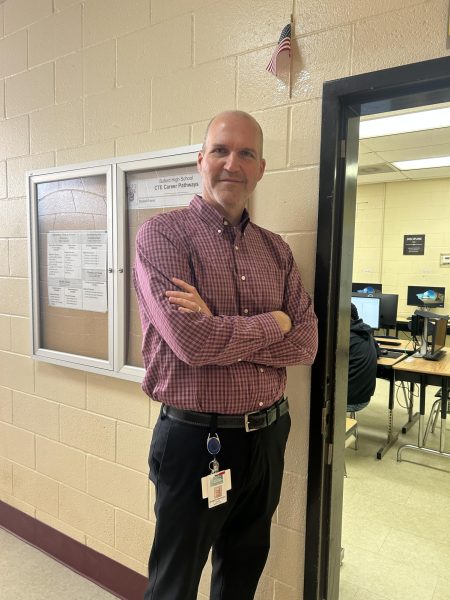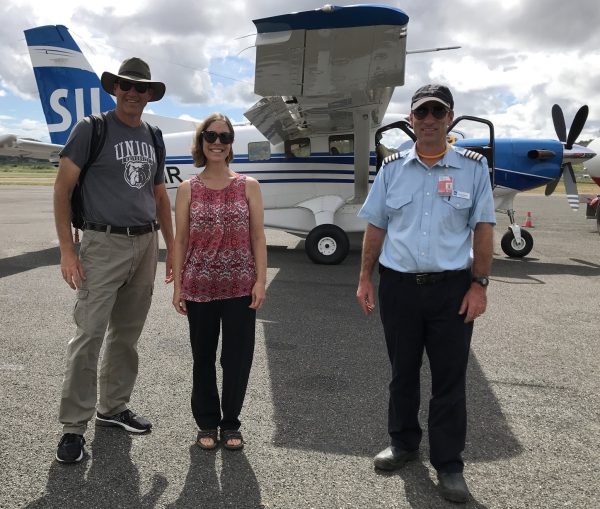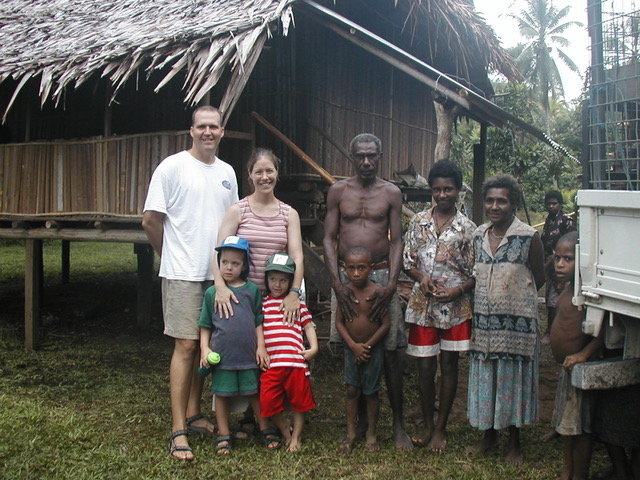 “It was a wild place, Papua New Guinea. I mean, 80 years ago, they were cannibals,” says Gregory Barkman. “They’re still very tribal…There’s still tribal warfare that goes on periodically,” he continues. “When I’m the husband, and it’s my job to protect my family, that’s a whole different level of responsibility… I was scared a couple of times, but. Yeah, here I am.”
“It was a wild place, Papua New Guinea. I mean, 80 years ago, they were cannibals,” says Gregory Barkman. “They’re still very tribal…There’s still tribal warfare that goes on periodically,” he continues. “When I’m the husband, and it’s my job to protect my family, that’s a whole different level of responsibility… I was scared a couple of times, but. Yeah, here I am.”
Before he came to Buford High School, Barkman spent a great deal of time traveling abroad.
Barkman’s life started in Southern California, where he moved to Peru at three years old. “I spent my grade school, middle school, and high school years there,” he recalls. Barkman’s life in Peru was full of adventure; being that his father was a bush pilot, they did plenty of traveling. “We did a lot of canoeing and lots of fishing.”
After graduating high school in Peru, Barkman returned to the U.S., where he attended college. “I came back to the United States…attended a little college called Bryant College,” he says. There, he met his wife. They got married the year after. Because of Barkman’s young marriage, money didn’t come easy. His working several jobs was challenging, “that was pretty stressful, but I was young, lots of energy. Had a young family, I knew it was necessary.”
While making ends meet, both Barkman and his wife returned to college to acquire their master’s in education. Like most, his first idea wasn’t teaching. When he was younger, he aspired to be a bush pilot, like his father, but plans changed when he injured his Achilles tendon. “I used all of my savings to pay for surgery, and I was going to use that savings to start flight school,” Barkman recalls being very upset over his injury; he even has a struggle with God. “I was angry with God about that for a long time, but I got over it…he convinced me that I would make a pretty good teacher, and I’ve been teaching ever since.”
After graduating from college and having two little boys, Barkman decided to join the missionary field like his parents had before him. It was then that he moved to Papua New Guinea. “I had always wanted to go back and do something as an adult like that. So I talked to my church. They pointed me in the right direction. I joined a mission organization, and off we went,” says Barkman. Moving to Papua New Guinea was a substantial change. He says the living environment was like nothing he’d ever experienced. “They lived in the forest. They cut down the forest and planted their gardens. They fished in the rivers. That’s how they lived.”

Since Papua New Guinea is so rural, technologically they haven’t gone far. However, Barkman says this change didn’t affect him too much, “We didn’t miss it terribly. I mean, if you wanted to send a message to somebody, you just wrote a note and gave it to somebody…it just kind of passed hand to hand until it got to the person it was intended to.” Because of the lack of communication, sharing information with family and friends was not easy to achieve. He says this is something he had to learn to live with over time. “It’s something I had grown up with, doing the same thing you learn to live with it….it gives you a larger view of the world, but it’s still difficult.”
After traversing the world, leaving family, friends, and places he calls home, Barkman shares the one thing he learned from his travels. “I’ve lived so many different places in life, I’ve left them all and said goodbye and may never go back. I left Peru, I left New Guinea. I’ve got friends in both places and have no plans to go back….home is not a place for me. Home is where the people are. When I’m with my people, I’m home, no matter where that is.”

